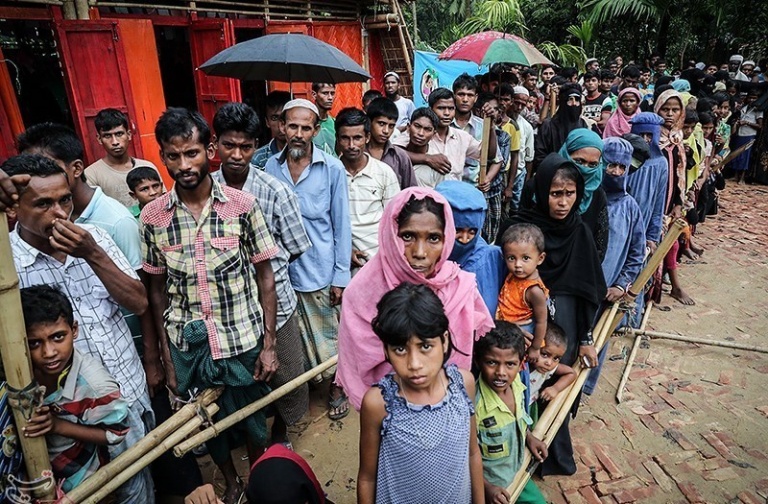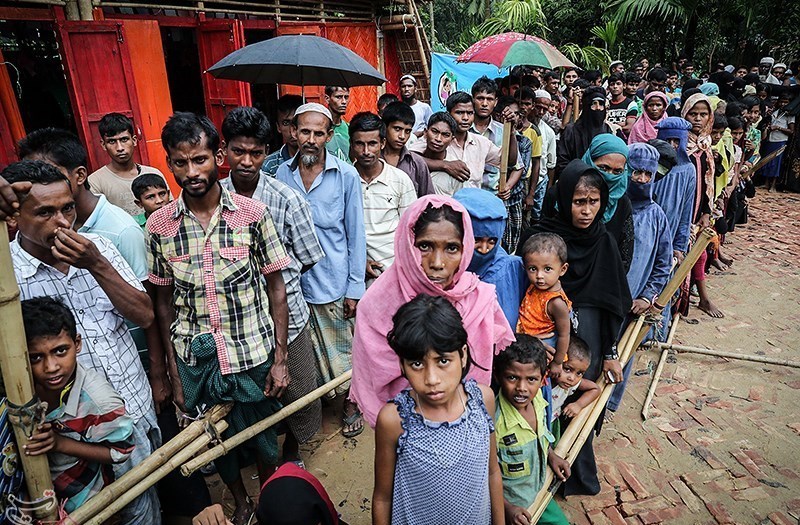Seven Rohingya refugees who were held in imprisonment since 2012, by the Indian state on the grounds of illegal migration, were deported back to Myanmar on Thursday, after the Supreme Court rejected their plea to stay back in India as they fear being killed in Myanmar.
The New Leam Staff

The Indian state officials handed over the seven migrants to the Myanmar state officials at the border crossing in Moreh in Manipur State.
The Supreme Court decided to carry forward the deportation keeping in mind the security of the state and also the fact that Myanmar state government had accepted them as citizens and also had given them seven certificates of identity and 1-month visas to facilitate their deportation. In 2017 Ministry of Home Affairs observed and also wrote to the states that “infiltration from Rakhine State of Myanmar into Indian territory especially in the recent years, besides being burden on the limited resources of the country also aggravates the security challenges posed to the country.”
Rohingya Muslims are the minority groups in the Rakhine province of West Myanmar who lack full-fledged citizenship of Myanmar state and are rather considered as “resident foreigners” or “associate citizens” by the state officials. At present there are at least 40,000 Rohingya migrants in India who fled from the home country after an attack against them by the Burmese army. It was observed by the United Nations Human Rights Commission (UNHRC) that the state of Myanmar is involved in ethnic cleansing of the minority group from their state. This security operation carried forward by the Myanmar state was denounced by the UNHRC on grounds of being brutal in nature.
The deportation of the Rohingya Muslim was carried out under the provisions of the Passport Act, 1920 or the Foreigners Act, 1946 of India. Amnesty international has criticised the government’s decision on the grounds that the minority group will be under serious threat in Myanmar. Aakar Patel official of the amnesty international has urged to take the issue to United Nations High Commission such that the Human rights of the refugees are protected. Defence Attorney, Prashant Bhushan, has asked the Indian government to consider the people of minority groups as refugees and not illegal migrants.
An illegal immigrant is (i) a foreign national who enters India on valid travel documents and stays beyond their validity, or (ii) a foreign national who enters without valid travel documents and under the Foreigners Act 1946 of India.
If a ‘foreigner’ has been apprehended by the police for staying in the country illegally, without any document, he or she is produced before the local court. The court after hearing the police and the alleged foreigner examines the case. If the accused is found guilty, they can be imprisoned for three months to eight years and the power to identify foreigners or illegal immigrants and further deport them has been left to the discretion of State Government in India.
Although the Indian state does not have any specific refugee law nor is it signatory to the International Convention of Refugees, 1951 but it still observes human rights laws and therefore considering the Rohingya as refugees would at least ensure their human rights protection to a certain level.
All the seven Rohingya have given individual undertakings. Mohammad Jamal, one of the Rohingya being deported said in the undertaking “I was satisfied with the facilities and amenities of the jail authorities, I am thankful to the administration for safe and comfortable departure to my country of origin.”













